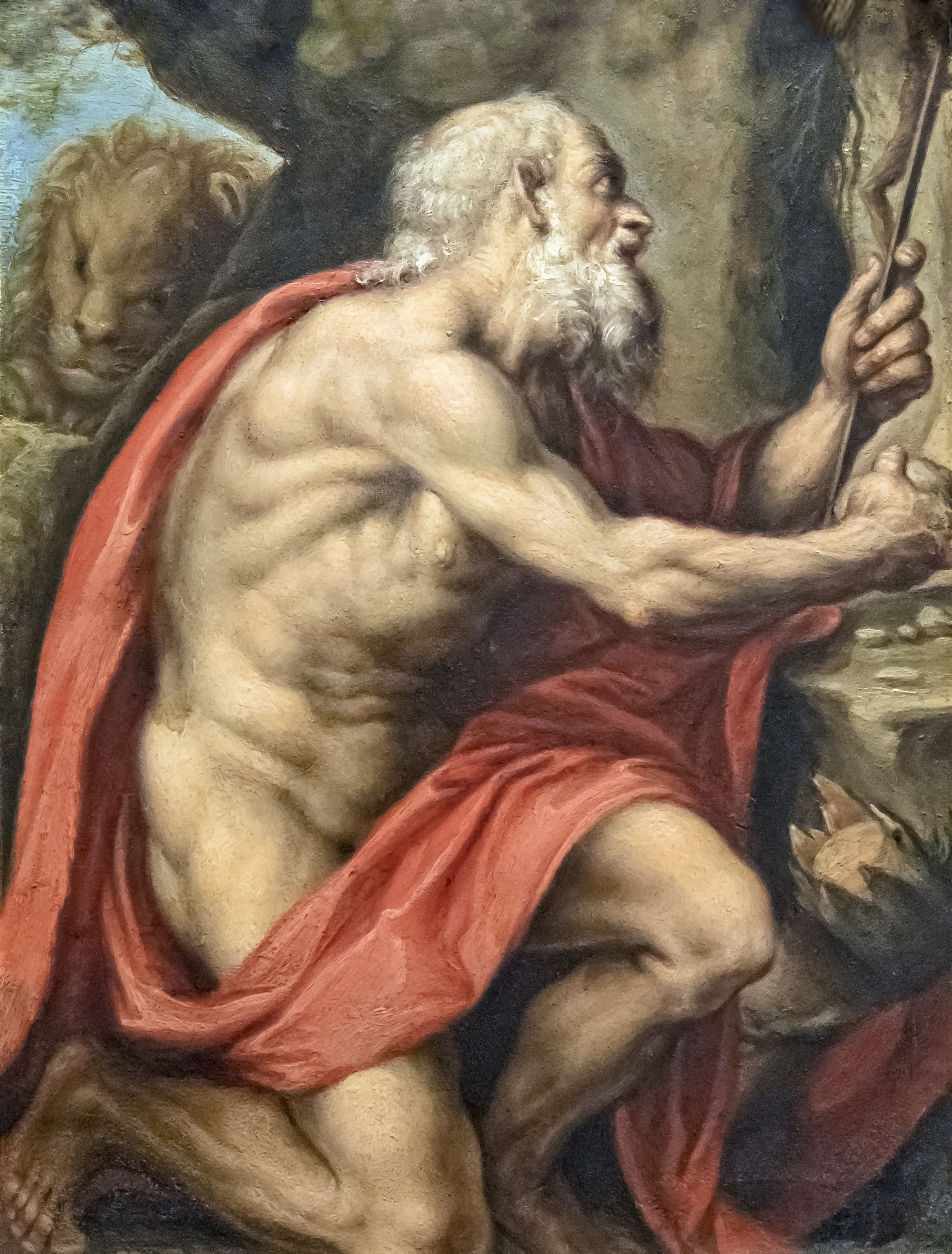Jérôme de Stridon, saint Jérôme ou, en latin, « Eusebius Sophronius Hieronymus Stridonensis » , en grec « Εὐσέβιος Σωφρόνιος Ἱερώνυμος » , né vers 347 à Stridon , à la frontière entre la Pannonie et la Dalmatie , et mort le 30 septembre 420 à Bethléem, est un moine, traducteur de la Bible, docteur de l'Église et l'un des quatre Pères de l'Église latine, avec Ambroise de Milan, Augustin d'Hippone et Grégoire Ier. L'ordre des hiéronymites se réfère à lui.
Jérôme suit des études à Rome, se convertit vers l'âge de 18 ans à la suite d'un rêve mystérieux, puis, après un séjour en Gaule, part pour la Terre sainte en 373. Il vit en ermite dans le « désert » de Chalcis de Syrie, à une cinquantaine de kilomètres à l'est d'Antioche. Il est ensuite ordonné prêtre à Antioche. En 383, le pape Damase Ier le choisit comme secrétaire et lui demande de traduire la Bible en latin. La marque de confiance que le pape lui avait accordée à cette occasion explique que la tradition et l'iconographie lui reconnaissent la qualité de cardinal, bien que l'institution cardinalice n'ait pas encore reçu, à l'époque, la définition précise que lui conférera au XIe siècle la réforme grégorienne.
À la mort du pape, il doit quitter Rome et retourne en Terre sainte en compagnie de Paula, noble romaine. Ils fondent un monastère double à Bethléem. Durant les 34 dernières années de sa vie, Jérôme se consacre à la composition d'un texte latin de l'Ancien et du Nouveau Testament, qui soit plus fidèle aux manuscrits originaux grecs et hébreux. Concurremment il rédige ses commentaires sur la Bible.
Il meurt en 420 et ses restes sont d'abord enterrés à Jérusalem puis auraient été transférés à la basilique Sainte-Marie-Majeure, l'une des quatre grandes basiliques de Rome.
Les catholiques le considèrent comme l'un des Pères de l'Église et, avec les orthodoxes, le vénèrent comme saint. Depuis Boniface VIII, en 1298, il est qualifié de docteur de l'Église.
Sa traduction de la Bible constitue la pièce maîtresse de la Vulgate, traduction latine officiellement reconnue par l'Église catholique. Il est considéré comme le patron des traducteurs en raison de sa révision critique du texte de la Bible en latin qui a été utilisée jusqu'au XXe siècle comme texte officiel de la Bible en Occident.
Wikipedia
✵
345 – 30. septembre 420
•
Autres noms
Svatý Jeroným,
Jeroným Hieronymus,
Jeroným
